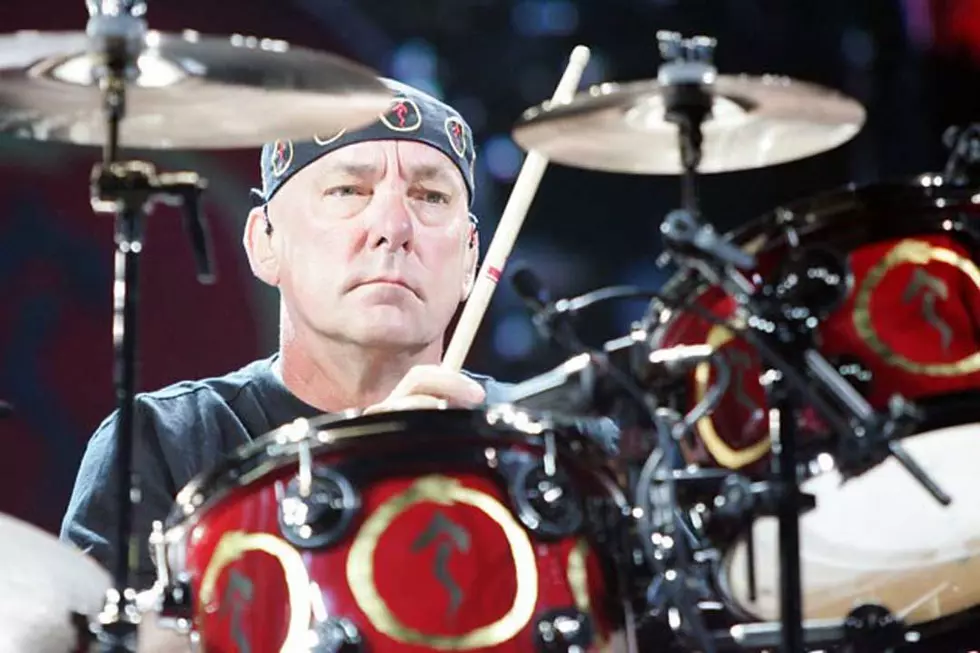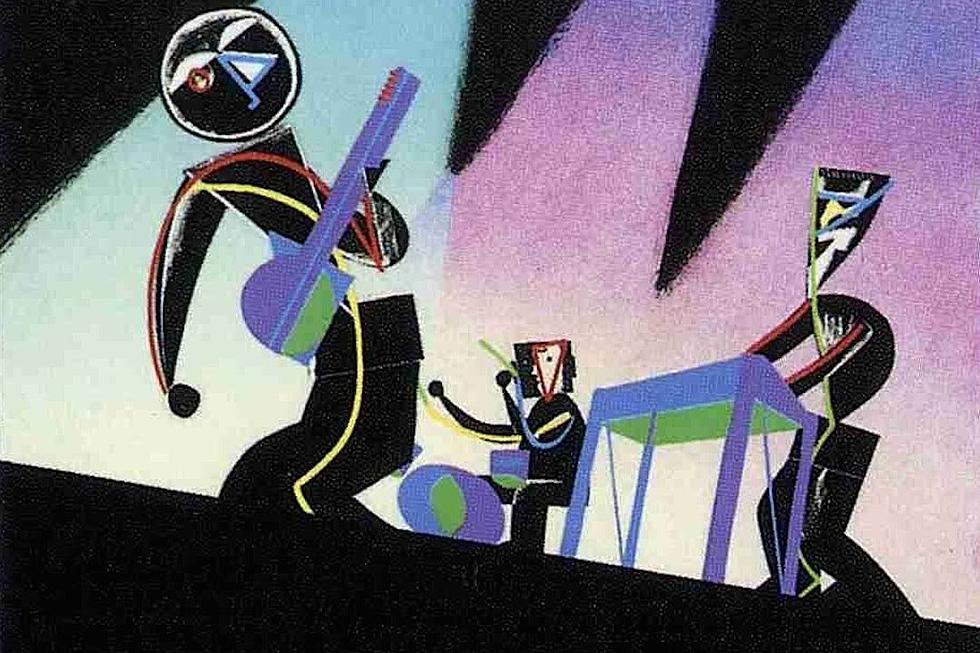
The Day Drummer Neil Peart Joined Rush
Rush frontman Geddy Lee wasn't exactly blown away by his first meeting with future bandmate Neil Peart. "My first impression was that he was kinda goofy," Lee said in the 2010 documentary about the band, Beyond the Lighted Stage.
Decades later, it's clear that this is precisely what made Peart such an ideal fit for these underdog future Rock & Roll Hall of Famers.
In the summer of 1974, the gangly, awkward 21-year-old drummer was already a veteran of numerous local bands (including the "very serious" J.R. Flood). But his career future remained uncertain, given the lackluster music scene in Ontario. Directionless, Peart was working behind the parts counter of his dad's farm equipment dealership in St. Catharines when he decided to audition for Rush. The trio, despite recently breaking through in the U.S. thanks to the Led Zeppelin-tinged hard-rock of their self-titled debut, had just parted ways with John Rutsey.
Peart arrived at the tryout driving his mom's Ford Pinto, with his drums safely stashed in garbage cans. "I remember thinking, 'God, he's not nearly cool enough to be in this band,'" says guitarist Alex Lifeson said in Beyond the Lighted Stage. But in spite of his questionable fashion sense, Peart's dextrous percussion skills won Lifeson over. "And then he started playing, and he pounded the crap out of those drums. He played like Keith Moon and John Bonham at the same time."
Peart officially joined Rush on July 29, 1974. Though he was excited to be following his dream, the circumstances weren't exactly ideal. Peart only had two weeks to learn the band's entire live repertoire before their long-awaited American tour. "It was like a tornado came and hit my life and swept it away," he said in the 2010 documentary.
Peart's Rush debut came on Aug. 14 at the Pittsburgh Civic Arena, as an opening act for Manfred Mann and Uriah Heep in front of 11,000 fans. It was a formative night. "Among the many memories of that life-changing experience, I would never forget standing on the floor beside stage left while Uriah Heep played 'Stealin'," Peart said in his 2006 book Roadshow: Landscape with Drums: A Concert Tour by Motorcycle. "The big dark building, colored lights on the heroic figures up on the stage, the roaring audience, the sheer electricity in that place. Halfway through their show, the retractable dome of the Civic Arena had peeled back, open to the summer night."
The trio made an immediate impression with their high-intensity hard-rock – even if not all of the band members recall the experience that clearly. In Lighted Stage, Lee admits that he was drunk off free Southern Comfort: "By the time I kinda came to my senses, the set was over and we were off."
Fast-forward across the decades, and it's hard to imagine Rush breaking through without the late Peart. In addition to being perhaps the best-known rock drummer not named Bonham or Moon, he also proved to be a lyrical genius – adding a level of poetic mysticism to Rush's music. His studio debut on 1975's Fly by Night was a major creative breakthrough, one now recognized as the true starting point to one of rock's most important bands.
Legends Who Never Had a No. 1 Single
The Rush / Metallica Team-Up That Slipped Away
More From Ultimate Classic Rock









